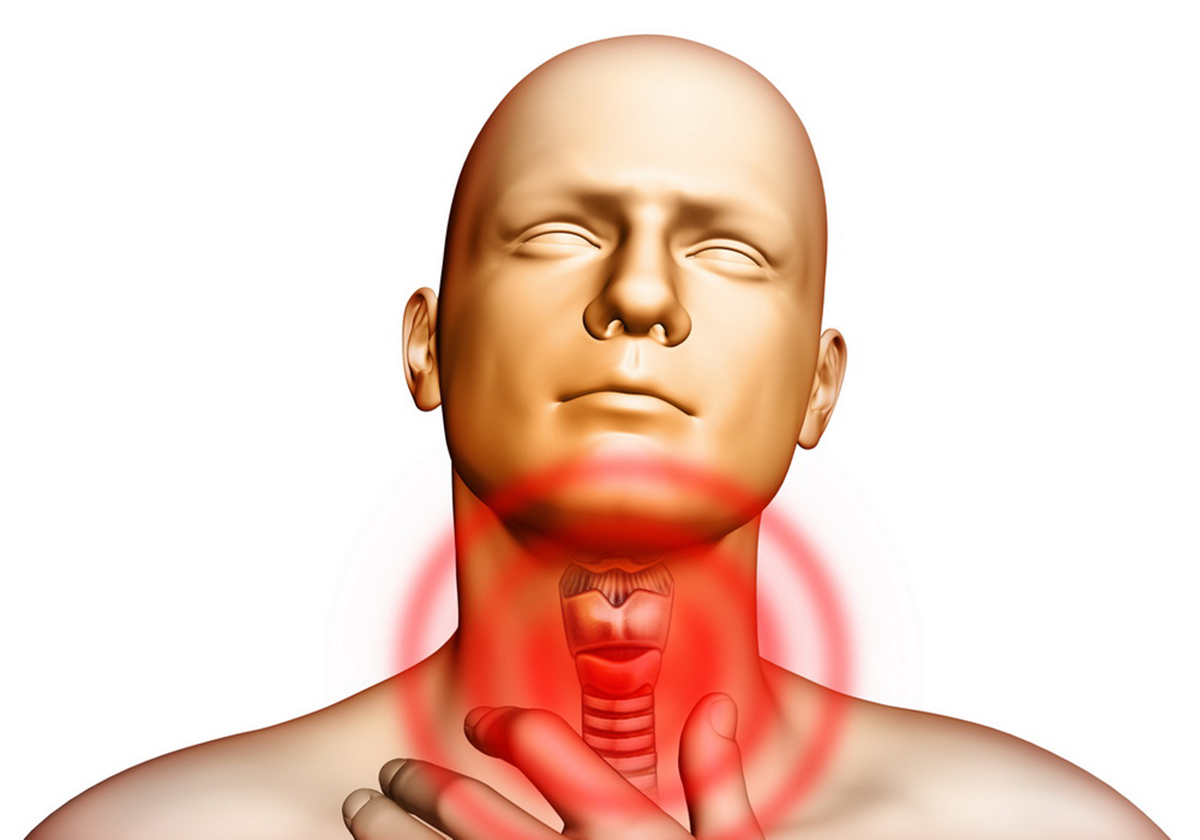The thyroid gland: tiny but powerful
The thyroid is a small two-inched gland that is located in the front of the neck, above the collarbone. Its main role is to produce hormones, which are molecules that act as messengers that take the message from where they are synthesized to other cells which can be right next to them or in a different organ.

The thyroid secretes two iodine-containing hormones: thyroxin (T4) and triiodothyronine (T3). T4 is produced and released in higher quantities than T3 because the first one is converted into T3 when it reaches its target tissues.
Thyroid hormones: The energy drink of cells
Thyroid hormones have a very important role in our metabolism, the mechanism through which cells convert nutrients into energy or use energy to produce other molecules, such as proteins.
Thyroid hormones also play an important role in growth and development to the extent that they are essential for the normal development of the fetal brain.
If this was not enough work load already, T3 and T4 affect other body systems as well. In the cardiovascular system, they increase heart rate and promote vasodilation; alterations in the balance of thyroid hormones in the central nervous system can cause mental problems and imbalances in the reproductive system can lead to infertility.
How are thyroid hormones produced?
Thyroid hormones are produced in the thyroid follicles, where they are also stored until released. For the synthesis of these hormones, two components are required: tyrosine molecules, which derive from thyroglobulin, and iodine that we get from our diet.
Once both tyrosine and iodine are present in the gland, the enzyme thyroid peroxidase, is the one in charge of the production of the T3 and T4 hormones. What the peroxidase does is to attach the iodine molecule to the tyrosine and then convert them into the final products.
Apart from iodine-containing hormones, the thyroid gland produces calcitonin as well, which controls the calcium levels in our body.
The hypothalamus controls the production and release of thyroid hormones by the thyroid gland.
See Also: Could You Have A Thyroid Disorder?
But how does the pituitary and the hypothalamus know when it is necessary to start the production and release of thyroid hormones?
Signals are sent to the hypothalamus regarding the state of T3 and T4 in the blood: if the levels are too low, it will send a message to the pituitary for it to release TSH, which will activate the production at the thyroid gland; if levels are too high, then the release of TSH will stop and therefore, the production of thyroid hormones will stop too.
Thyroid Hormones Imbalance And Its Consequences
Messing with thyroid hormones can cause several side effects and promote the development of diseases related to thyroid hormonal imbalance.

Hypothyroidism: cells as slow as a turtle
Hypothyroidism is characterized by a decrease in the levels of thyroid hormones.
Primary hypothyroidism is caused by a problem in the thyroid, which is usually a result of an autoimmune disorder. In this case, the immune system of the patient attacks the thyroid by not recognizing it as part of the patient´s body and destroys it, basically. Because the thyroid is damaged, it cannot produce thyroid hormones anymore. Primary hypothyroidism is related to specific diseases and syndromes, being the most known one Hashimoto thyroiditis.
The disease can also be caused by surgical treatments or complete removal of the thyroid gland, for example, in the case of thyroid cancer. Finally, since iodine is a major component of thyroid hormones, people with iodine deficiency can also present congenital hypothyroidism.
The symptomatology that accompanies hypothyroidism tends to be subtle and is mainly related to metabolic imbalances.
A patient with hypothyroidism can be recognized by changes in his or her facial features, such as facial puffiness and preorbital swelling, sparse and dry skin and hair and difficulties to articulate words or slow speech.
There are available in the market several preparations of synthetic thyroid hormones which contain T3 or T4, or a combination of both.
Hyperthyroidism: Hyperactive thyroid
Hyperthyroidism occurs when thyroid hormones levels are increased above the normal.
Hyperthyroidism is usually related to thyroiditis, which is basically an inflammation of the thyroid gland, but it is also caused by Graves disease and multinodular goiter.
Because thyroid hormones are present in very high amounts, the symptomatology of the disease relates to an accelerated metabolism.
Infiltrative dermopathy is also a common feature of hyperthyroidism patients. This problem can be detected as an induration of the skin, which shows a waxy texture, similar to the peel of an orange.
Hyperthyroidism is usually treated with anti-thyroid medications, such as methimazole and propylthiouracil, but sometimes it is necessary to ablate the thyroid by using radioactive iodine or surgery.
- Photos by shutterstock.com
- www.merckmanuals.com/professional/endocrine_and_metabolic_disorders/thyroid_disorders/hypothyroidism.html
- www.clevelandclinicmeded.com/medicalpubs/diseasemanagement/endocrinology/hypothyroidism-and-hyperthyroidism/
- umm.edu/programs/diabetes/health/endocrinology-health-guide/thyroid-gland
- arbl.cvmbs.colostate.edu/hbooks/pathphys/endocrine/thyroid/synthesis.html
- arbl.cvmbs.colostate.edu/hbooks/pathphys/endocrine/thyroid/physio.html


Your thoughts on this